

People play games for many different reasons. Some enjoy driving a car in a circle, while others prefer jumping around collecting shiny baubles. Then there are the miscreants who love nothing more than pointing and clicking on whatever they want to die. These are all admirable pastimes, and the games industry has become expert at packaging such experiences into a format best described as "cinematic." But as games have become more "cinematic," a key feature of the cinema is often left behind. Storytelling in games is usually a crude byproduct of game design necessity, an afterthought shoehorned crudely between the ice world and the sewer level. It's natural that games should look to film for help in developing meaningful narratives, but it is often the case that film's narrative devices feel overly contrived in a dynamic, interactive setting in which the player should be calling the shots.
Canadian developer BioWare has always met the challenges and opportunities of interactive storytelling head-on, drawing inspiration from film techniques, but masterfully building upon them and integrating them into interactive experiences that propel the art of storytelling to new levels.
Mass Effect 2 is BioWare's most fully realized work to date. The hybrid shooter/RPG leaves the player feeling like they are interacting not only with polygons and physics, but with heady philosophical concepts and the very fabric of the narrative itself. It's a breath of fresh air in an industry where character development usually goes pistol, shotgun, rocket launcher. It's a rare thing for a game to build such a strong rapport with story and characters, but Mass Effect 2's unparalleled writing, sparkling graphics and top-notch voice talent make it easy to get pulled in.
Another unique concept that pushes the narrative envelope, Mass Effect 2 allows you to import your character from the first game. At import you can alter your appearance and class to your liking, but all your decisions remain intact. A surprising amount of unexpected baggage comes along with you. Throughout Mass Effect 2, you're accosted by a motley gaggle of minor characters whose lives you affected in the first game. You'll struggle to remember some of them, and others you'll recall after a bit of conversation. Some offer thanks, others entreat you to entertain a side-quest. In any case, you come away feeling like you've made a lasting impression on the world, something few games can actually pull off. If you haven't played through the first game, we highly recommend it as importing your character adds immensely to the enjoyment of Mass Effect 2. It isn't a prerequisite, though, as there's plenty for new players to like.
The main story arc of Mass Effect 2 revolves around attacks on several human colonies whose inhabitants have vanished without a trace. You're recruited by the pro-human splinter group Cerberus to investigate the mysterious disappearances. Along the way you recruit a team of elite operatives to take the fight to the bad guys in what increasingly looks like a suicide mission.
Mass Effect 2 has been described as the dark second chapter of the trilogy, the series' "Empire Strikes Back," if you will. Nowhere is this more apparent than in your squadmates' personal missions. Each new recruit has a personal quest you can tackle before setting out on the final mission. Completing a personal quest unlocks a new power and costume, and cements that character's loyalty to Shepard and the mission. Though technically optional, these diversions are the strongest part of the game and you're missing out if you don't play through all of them. They invariably contain a shocking reversal, a moral quandary of some description, and variations on gameplay that go beyond simple combat. One personal quest consists primarily of espionage and tailing a target, while another requires you to seduce your quarry in a nightclub. Be prepared to grapple with topics ranging from broken families and inhumane experimentation to robots' rights and the ethics of genetically neutering an entire race. These personal missions bring both the individual characters and the larger universe to life in a much more satisfying way than your typical RPG fetch-quests. The darkly-tinged scenarios resonate on an emotional level as you guide your squadmates through the conflict to resolution.
Above: Emo game is sad
It's often been asked if it's possible for games to make people cry. Mass Effect 2 sidesteps the question by leaving it up to you whether you want to commiserate or smirk cynically at the pain of others. It would come across as contrived in many games, however the writing here is strong enough that it feels authentic when a character breaks down in tears. And fortunately, the drama has been leavened with a healthy dose of humor to keep things from getting too heavy. Here's one universal archetype we can all relate to:
As we recruited new characters and got to know them, we found it harder and harder to choose just two for our squad at the start of each mission. Sometimes you need a specific character on your team to trigger the right dialog options to start a mission, as in Grunt's personal quest on the Krogan homeworld. If he's not in your party, you can't ask anyone about his situation. Logical, right? Combat abilities are another important consideration. If you'll be facing Geth, you'll want an Engineer who can hack them. Also logical. But we found ourselves regretting having to leave characters behind on the ship; we wanted them to come with because we enjoyed their personalities as much as we needed their combat skills. The downside is that when people spend too much time in a cramped, chilly spaceship revealing their deepest feelings to each other, things can get a little... intense.
Above: That's our Shepard in the middle, if you were wondering
You'll be happy to know that crew interaction is not limited to settling catfights in the corridors, though that is a nice perk of command. Ask the wrong person the wrong thing at the wrong time, and they'll open up to you in unexpected ways. You may end up learning things that you didn't want to know.
Another innovative story mechanic in Mass Effect 2 is the ability to interrupt a conversation with an action. Don't care for that Krogan's long-winded rant about his clan's schemes on galactic domination? Then shoot the exploding tank under his feet and get the action moving! These interrupts can push you more toward Paragon (good) or Renegade (evil) status, depending on context and are an exciting addition to Mass Effect 2's already robust dialog options.
It wouldn't be Mass Effect without romance, which is still present in the sequel but hopefully won't become another target for misinformed culture warriors. In Mass Effect 2, male Shepards have the opportunity to court genetic uber-frau Miranda, while female Shepards can go after hunky Jacob. Jack, aka Subject Zero, is another potential romantic interest. She's a freaky-deaky super biotic with an unbelievably dark backstory that we won't spoil for you here. Whomever you pursue, you'll get the opportunity to consummate the relationship just prior to the start of the final mission. As in the first game, once you've progressed to a certain level of intimacy with one partner the other will reject your advances.
Above: WFT IS IT WITH DOODS NAMED JACOB???!!!?!?!?!
A new romantic twist comes from Yeoman Kelly Chambers, your personal assistant aboard the Normandy, who flirts openly with you and can even be persuaded to join you for a private dinner in your quarters. The relationship stays strictly platonic, though she did offer to feed our fish for us while we were away.
Above: Fish and ships are just a few of the customization options available in the Captain's quarters
Mass Effect 2 offers a whole menagerie of stuff for you to explode, and plenty of ways to do it. Devastating biotic powers and the addition of heavy weapons ensure that combat is never stale. Everything is controlled through two selection wheels, one for powers and one for weapons. Pulling up a wheel pauses combat while you select a new weapon or activate a biotic power. You control your squadmates' biotics too, which gives you the opportunity to unleash powerful combo attacks. Another useful update to the 360 version is the ability to easily set separate waypoints for your teammates by simply pointing and tapping on the d-pad (a feature that was in Mass Effect for PC but notably absent from the 360 version). This is especially useful as the battlefields are larger and more diverse than in Mass Effect, so assigning separate waypoints opens up new tactical opportunities. For example, you can send your Krogan charging full bore at a group of enemies while your biotic flanks and you hang back to snipe. In one mission, direct sunlight will instantly deplete your shields so squad positioning and advancement is especially important.
Mass Effect 2 also completely overhauls equipment and upgrade management, throwing out the paper doll for an almost overly streamlined spreadsheet-based system. You won't find yourself endlessly scrolling through scavenged equipment trying to decide what to equip and what to reduce to omni-gel. You pick your loadout on the ship or at conveniently placed weapons lockers, and you very rarely pick up new weapons on the battlefield. More often, you scan found weapons for upgrade data, which you can then build back on the Normandy. Built upgrades are automatically applied to the weapons of your entire team. This might irk loot-hungry fans who love micromanaging stats and cashing in useless gear at the shops (I found 12 pistols on that mission yay!) and we'll admit we were a little off-put at first. But as we got our head around the new paradigm, we realized that all the tweaks to loot, inventory and upgrades freed us up to focus on the fluidity of the combat and tactical decision making, which was vastly more fun than Mass Effect’s clunky item management anyway.
Since weapon upgrades affect your entire team the only place where changing your loadout makes a difference is with Shepard's heavy weapon. Each has slightly different uses (particle beam vs missile launcher, for example) and heavy weapons are the only ones whose ammo is scarce. Access to specialty ammo has changed from the first game too; special ammo types are now available on the biotic power wheel rather than being a weapon-level modification handled in the equipment screen. Some characters can develop warp or shredder rounds, but it’s all done quickly and easily through biotics. It’s a relief after the first game’s convoluted menu screens.
There are also character specific upgrades you can develop in the lab. You can research custom biotic amps for Jack or special health tonics for Grunt, for example, or even upgrade the ship itself. It's up to you how you want to spend your hard-earned money and resources. Speaking of resources, than brings us to...
There's one atrocious part of Mass Effect 2 that sticks out like a sore thumb. In order to build the upgrades you find scattered throughout the universe, you'll need to gather resources. A small amount of resources are found in crates during the course of missions, but if you want to build the really rockin' stuff you'll have to play the mining minigame.
Above: That's no moon... oh, wait
The mining minigame consists of holding down the left trigger while sweeping the scanner across the surface of the planet. When you've found something, the controller vibrates and the readings on the line graph spike up. That's your cue to fire a probe and collect your resources. Conceptually, it would work if it didn't take so damn long to scan each planet. It just gets more and more irritating every time you're forced to endure it. Want to build that sweet shotgun upgrade you just found? Get ready to piss away half an hour or more sweeping the solar system for platinum. This tedious minigame is a letdown after the masterfully paced combat and story.
Our bittersweet reunion with our love interest from the first game was utterly ruined because we had to have that extra +5% health. Well, you never know when shooting might break out, right? On the topic of armor, upgrades and customization felt a bit sparse throughout the game, with new options coming few and far between. In contrast to the relative scarcity of new armor in the game, we couldn't help but note the diversity of armor on offer through a variety of external channels.
Above: Consumer loyalty programs: which will you succumb to?
There are two pieces of DLC that will be available on launch day by accessing the Cerberus Network with the included download code. The first is the Normandy crash site, which is a simple side-quest tasking you to collect dog-tags amidst the wreckage of the first Normandy. Search thoroughly and you can also find Shepard's original N7 helmet to keep on your desk as a memento. The second bit of DLC introduces a new character, Zaeed. He's a rough-and-tumble Cerberus mercenary who joins the crew of the Normandy. Unfortunately, Zaeed and his mission were not available to download as of press time so we can't comment much on it. But the fact that a new character and mission are ready to go on day one speaks to BioWare's commitment to fleshing out the universe with additional content.
How important the new content might be to Mass Effect 3 is anyone's guess, but we're looking forward to spending more time with Shepard and adding to the crew. We logged around 45 hours on our review playthrough, which included all the personal quests and the final mission. And honestly? We're chomping at the bit to jump in and start a new playthrough with a new character. Mass Effect 2 is the first must-have game of 2010, and we're sure we'll be playing it well into 2011.
Jan 26, 2010
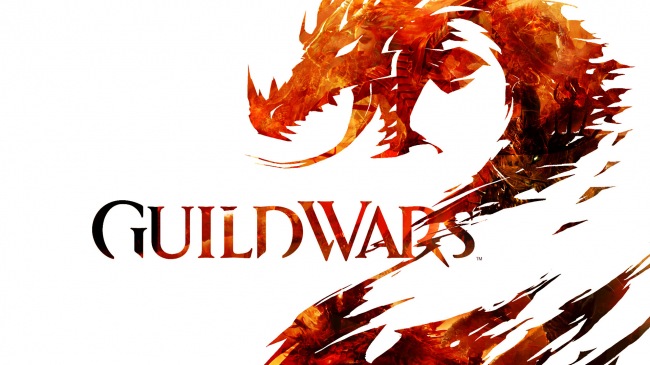
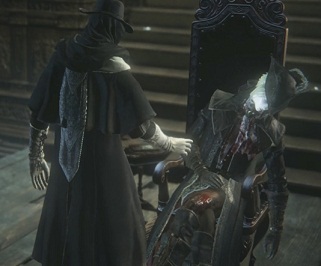
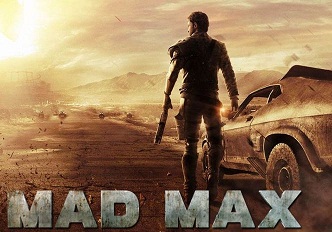
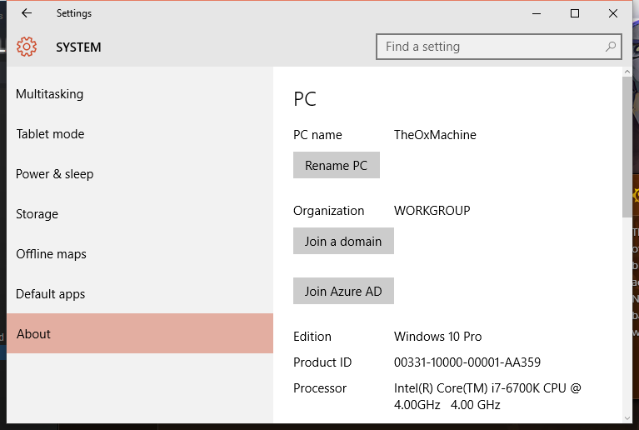
 NCAA Football 12 Review Roundup
NCAA Football 12 Review Roundup Witcher 3: Hearts of Stone - How to Beat the Caretaker
Witcher 3: Hearts of Stone - How to Beat the Caretaker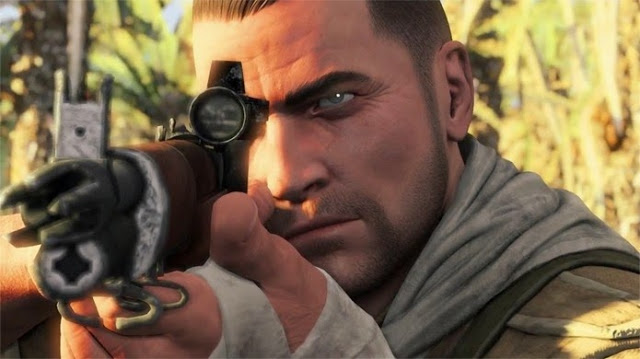 Best Sniper Shooter Games (2015)
Best Sniper Shooter Games (2015) Dark Souls 2 Adaptability Explained
Dark Souls 2 Adaptability Explained MGS 5 The Phantom Pain: Unlock Emblems / badges / logos
MGS 5 The Phantom Pain: Unlock Emblems / badges / logos